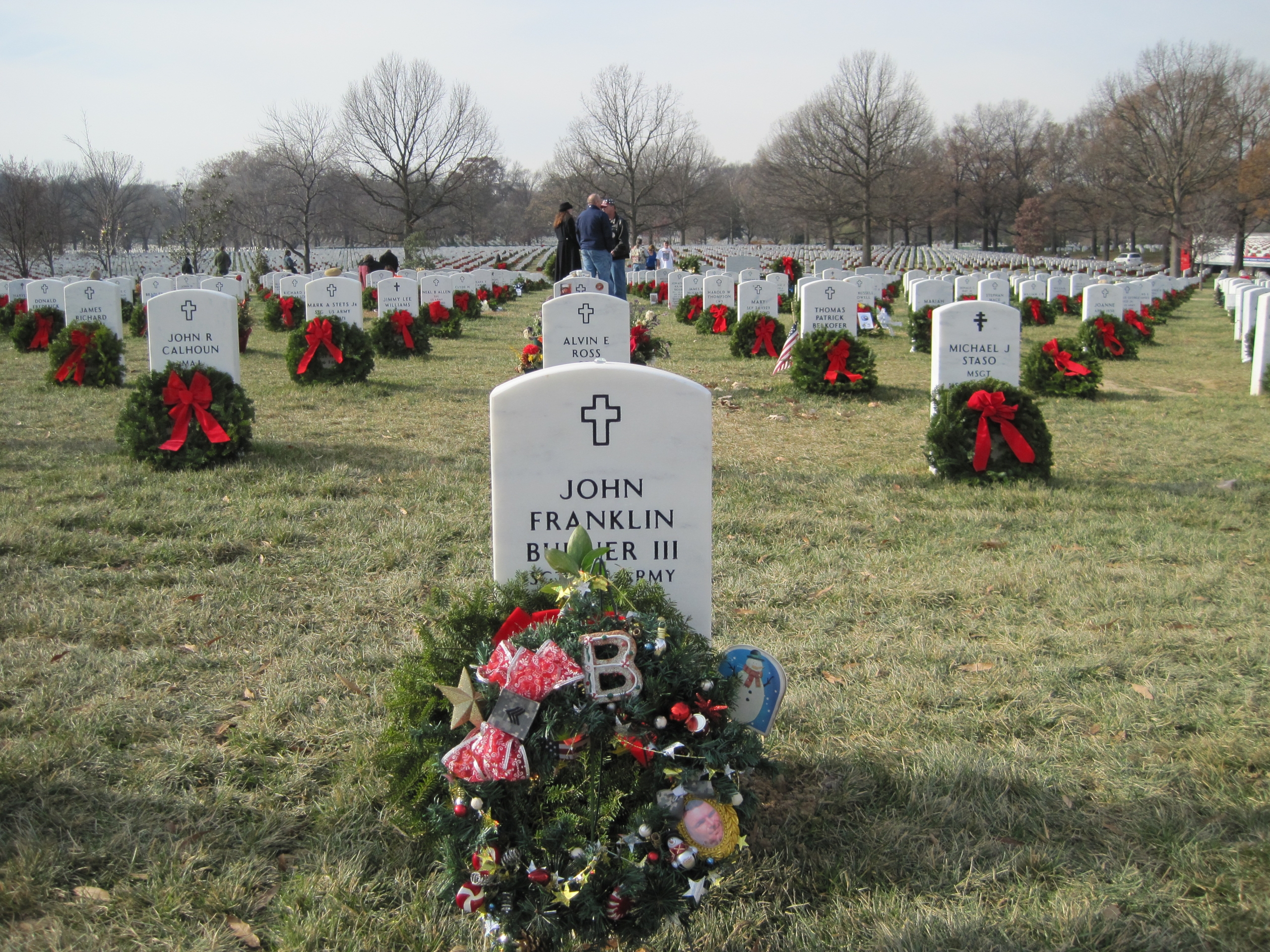U.S. Department of Defense
Office of the Assistant Secretary of Defense (Public Affairs)
News Release
IMMEDIATE RELEASE No. 843-10
September 17, 2010
DOD Identifies Army Casualty
The Department of Defense announced today the death of a soldier who was supporting Operation New Dawn.
Sergeant John F. Burner III, 32, of Baltimore, Maryland, died September 16, 2004, in Iskandariya, Iraq, in a non-combat related incident. He was assigned to the 63rd Signal Battalion (Expeditionary), 35th Signal Brigade, Fort Gordon, Georgia.
Honoring a fallen hero
Sergeant John Franklin Burner III was remembered Thursday as a “soldier’s soldier” and family man who touched many lives before his own was cut short.
Burner, 32, died September 16 in Iskandariya, Iraq, of an unspecified illness, leaving behind his wife, Verena, and two daughters in Grovetown.
Members of the 35th Signal Brigade, with whose 63rd Expeditionary Signal Battalion Burner was last deployed as a satellite systems team chief in Iraq, crowded into Fort Gordon’s Alexander Hall along with friends, family members and even Augusta’s mayor for the tearful memorial service.
At the start of a successful, 15-month combat tour Burner led through Iraq in 2007, Burner “told me everything would be fine,” Sgt. 1st Class Terry Moore said.
“I was highly impressed with this noncommissioned officer. What he told me in the beginning was true,” Moore said.
“He was willing to perform any mission with no complaint,” said Captain Curtis Andries, who was with Burner on the tour. “His death hit me like a ton of bricks.”
Among other things, Burner was a friend, comedian, soldier, teacher, husband, father, training officer and “Facebook game fanatic” who often encouraged his colleagues to go home to their families while he finished up work at Fort Gordon, Sgt. Phillip Whaley said.
The Baltimore native enlisted at 18 and deployed four times during his 13-year Army career.
Burner and 120 other soldiers deployed to Iraq on Aug. 21, just three weeks before his death.
Burner succumbed to an illness and did not commit suicide, Fort Gordon spokesman Buz Yarnell has said. He said Thursday that no additional information was available about the cause of death.
Burner will be buried with full military honors October 13 at Arlington National Cemetery.
September 22, 2010
John Burner Jr. always worried about the safety of his sons while they served in Iraq, but he was confident in the medical response for injured comrades.
But the Catonsville man is left with doubts about the military’s treatment of noncombat ailments after his eldest, Sergeant John F. Burner III, 32, died Thursday in Iskandariya while awaiting treatment for a respiratory illness as he traveled to join his battalion.
“You’re trained in trauma, but you’re not trained for the common cold, or flu, or H1N1,” said John Burner, 56.
His son was a satellite systems team chief assigned to the 63rd Signal Battalion (Expeditionary), 35th Signal Brigade in Fort Gordon, Ga., which deployed August 21.
“If he had been in the field and shot in the head, he would have been taken to Germany immediately,” the father said. Instead, “during transit, he looked for medical help, and they denied it to him,” Mr. Burner said. “He was told that the medical lab was down and testing wasn’t available.”
Medical officials at Dover Air Force Base performed an autopsy, Mr. Burner said, though he was told it may be six months before a report is released.
Soldiers are evaluated before deploying and receive medical care if needed, Cynthia Vaughan, an Army spokeswoman, wrote in an e-mail. “If a soldier becomes symptomatic or ill in transit, he or she is evacuated to the closest medical facility,” she wrote.
In response to questions about whether that protocol was followed for Sergeant Burner, Vaughan said that privacy laws prohibit discussion of an individual’s care.
Army officials have reported negligence in recorded interviews, John Burner’s father said.
He cautioned that he’s “not trying to destroy the Army” — their youngest son, Carl, is also an Army sergeant and is home on funeral leave from a tour in Balad, Iraq. But John Burner and his wife, Sandra, want to know what happened and whether procedures exist to prevent a similar tragedy.
“They’re doing what they can to conclude the investigation,” the father said. “You really cannot guess anything. You have to wait for the investigation to go all the way through.”
Born to a family with a military history stretching back to the Revolutionary War, John F. Burner III enlisted in the U.S. Army in 1996 shortly after he graduated from Catonsville High School, where he played football. He met his wife, Verena, while stationed in Germany, and returned with her to Fort Gordon. The couple have two daughters: Celina, 10; and Caitlyn, 6.
During his 13-year career, he had been deployed to Bosnia as well as two other tours in Iraq. He will be awarded the Bronze Star posthumously, his father said.
Sgt. Burner had pneumonia in the spring, but had fully recovered.
His family was told that he had passed out while in his first stop in Kuwait, where he had stayed for several weeks to train other soldiers while the rest of his battalion continued on to Camp Kalsu in Iraq. He first reported being sick on September 12 and saw a doctor in Kuwait the next day.
Sergeant John F. Burner III Death Investigation
By vburner | Posted February 8, 2011 | Grovetown, Georgia
CNN PRODUCER NOTE
My husband passed away on 16 September, 2010 in Iraq due to a non combat related illness. A few weeks ago I received the Investigation that was conducted by Army officials to look into his death. I feel like it is important for others to know how the Soldiers are being treated, or should I say not being treated. My husband has been sick for over a week before he passed away, but was not taken serious. He had been seen by doctors multiple times, but was always sent away.After reading over the more than 300 page report, things start to make sense and I am glad I did not give up seeking for answers.
The investigating officer found that there was no Relief in Place (RIP) plan. My husband’s chain of command did not actively engage him to seek medical attention after finding him passed out in a doorway. Instead someone referred to him as sleeping in the doorway. The medical evaluations conducted did not reveal the underlying condition which led to his death. On 15 September, 2010 John’s ground evacuation by the outgoing unit, a distance of only one half of a mile, took 45 minutes from the initial call until the arrival at the Medical Treatment Facility. the medical Treament Facility handover between the outgoing and incoming unit was inadequate. During the RIP, it is the outgoing unit’s responsibility to develop and lead the execution of the transition plan with the incoming unit. The outgoing unit did not have a plan to train-up and transfer responsibility to the incoming unit. As a result, the incoming unit medical care providers did not fully understand the capabilities that existed. Before there were conflicting statements as to whether or not there was a lab, the investigation revealed that there was at least a partial lab for blood work available. Also there was no X-Ray machine available, because the outgoing unit had already packed theirs up and the incoming unit didn’t unpack their X-ray equipment yet.
I feel that this is total negligance and needs to be known. Our soldiers deserve the best care available.
the investigating officer recommended another Quality Assurance review be conducted by the U.S. Army Medical Command to ensure that the standard of medical care for my husband was met.
The Command pursue appropriate administrative and / or corrective training for the Company involved, specifically the CO 1SG and other leadershp. Command pursue appripriate administrative and / or corrective training for the responsible parties in the RIP plan.
Command pursue appropriate administrative and / or corrective training for the Soldiers assigned with conducting ground evacuation procedures during the 15 September, 2010 emergency. The evacuation personnel was found asleep in their living quarters, they had to be called three times before responding to the emergency. To me, his is unexcusable. I truly hope that the right people read my report and a change is made somewhere. My children and I ahve lost everything and have been treated like we don’t exist. I do not want to bad mouth the Army, but people do need to be held accountable for their actions!
My husband passed away from blood clots, a very treatable condition.
BURNER, JOHN FRANKLIN
- SGT US ARMY
- IRAQ
- DATE OF BIRTH: 02/19/1978
- DATE OF DEATH: 09/16/2010
- BURIED AT: SECTION 60 SITE 9375
ARLINGTON NATIONAL CEMETERY
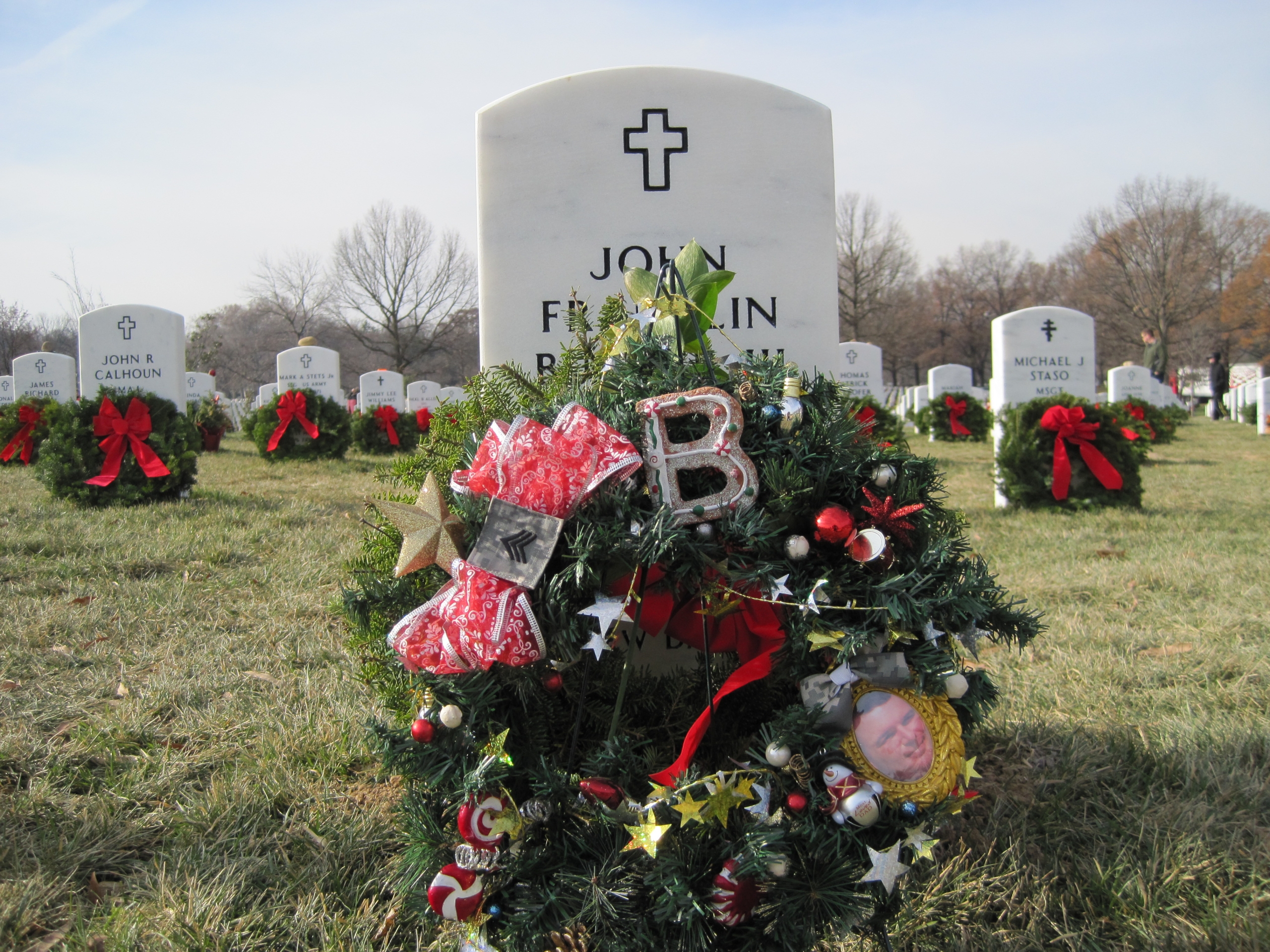
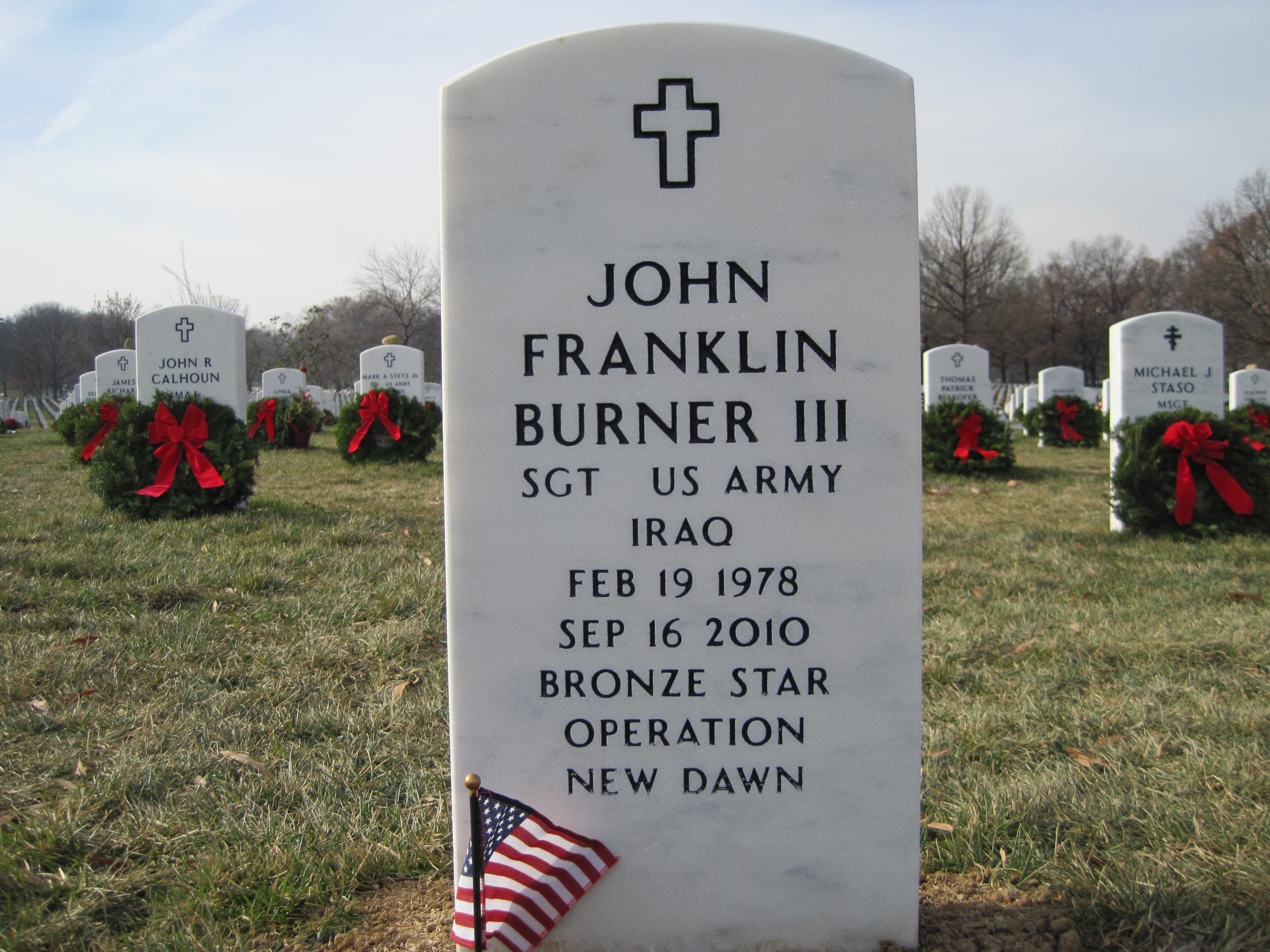
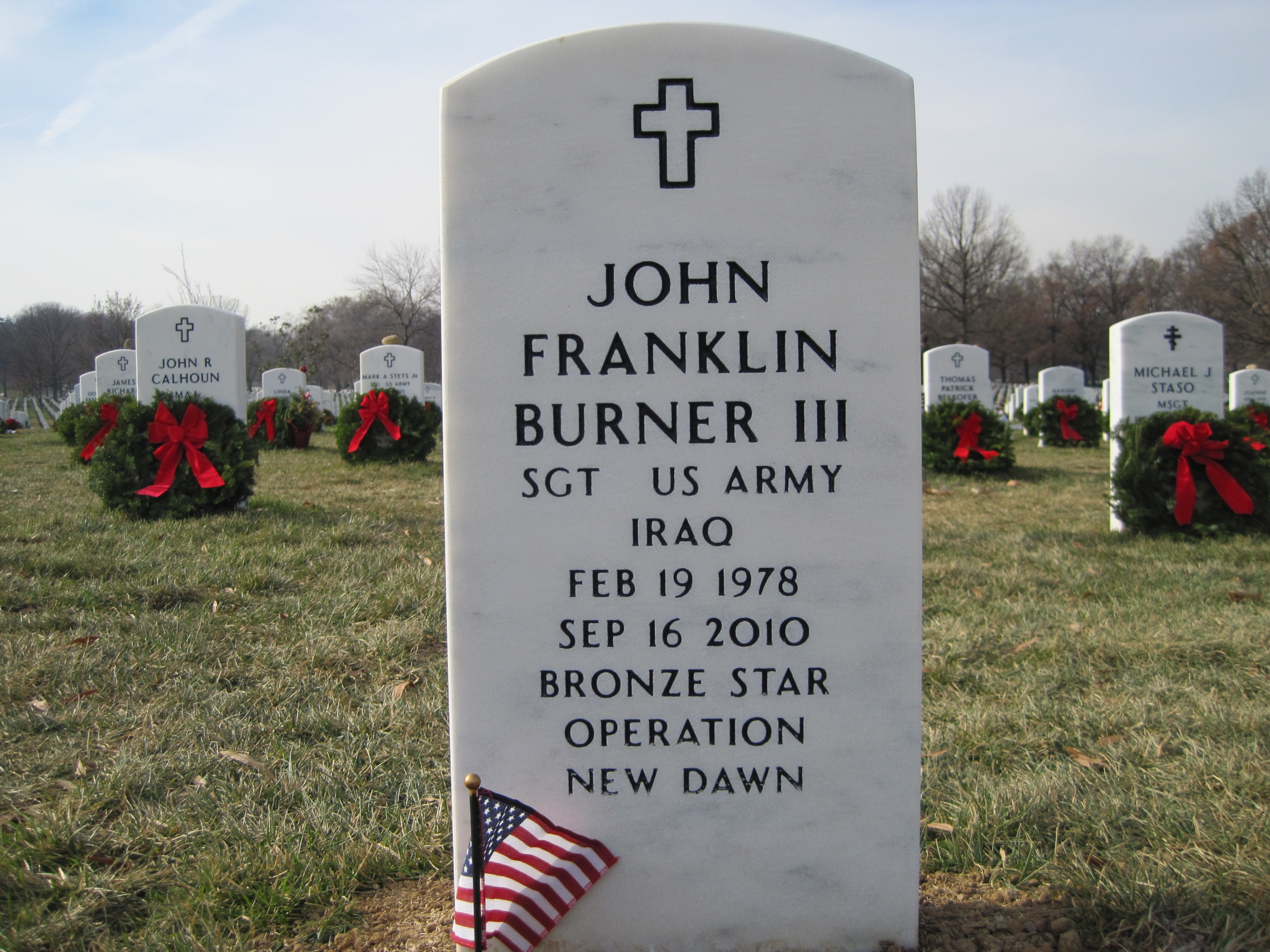
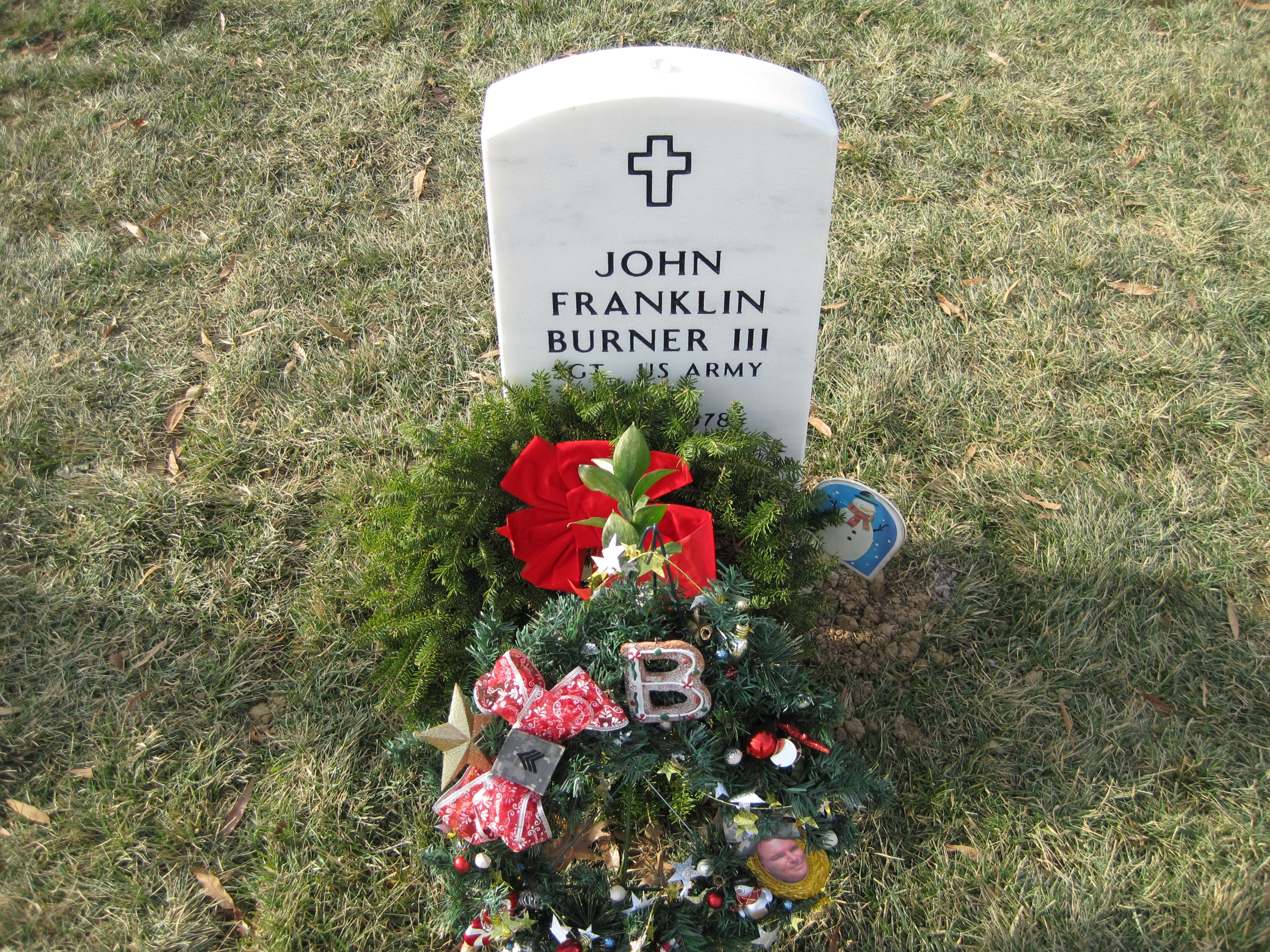
Michael Robert Patterson was born in Arlington and is the son of a former officer of the US Army. So it was no wonder that sooner or later his interests drew him to American history and especially to American military history. Many of his articles can be found on renowned portals like the New York Times, Washingtonpost or Wikipedia.
Reviewed by: Michael Howard

